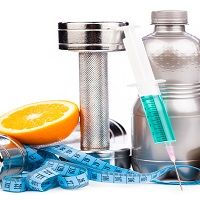Article
From Sight to Taste Studies Look at Testosterone and the Senses
Author(s):
How much can you predict about what people will do by measuring the testosterone in their saliva?

How much can you predict about what people will do by measuring the testosterone in their saliva?
Several new studies suggest that you can predict a surprising amount.
Researchers from the University of Glasgow recruited heterosexual women and showed them baby pictures once a week for 5 weeks. When each woman showed up to look at the pictures, researchers took a saliva sample and measured it for testosterone, estradiol and progesterone.
The selection of pictures intentionally included some babies with characteristics that make people perceive them as “cute” and some babies that lacked those characteristics.
All women responded more positively to the cute babies than they did to the plain babies, but higher testosterone predicted greater differences in each woman’s response. The higher the testosterone, the greater the percentage of each session a woman spent looking at cute babes.
Changes each woman’s testosterone levels from one week to the next, moreover, predicted changes in that woman’s preference for cute babies at that particular viewing session.
Differences in estradiol and progesterone levels — either among different women or within each woman over time — had no significant effects on viewing preferences.
“This within-woman effect of testosterone was independent of the possible effects of estradiol and progesterone and was not simply a consequence of changes in women's cuteness perceptions,” the study authors wrote in Hormones and Behavior.
“These results suggest that testosterone may modulate differential responses to infant facial cuteness, potentially revealing a new route through which testosterone shapes selective allocation of parental resources.”
Researchers from Japan, meanwhile, recruited both men and women to study the effect testosterone levels had on their willingness to forego small but immediate rewards for larger benefits down the road.
Using saliva samples to measure testosterone levels and surveys to measure how much each subject “discounted” the value of future rewards relative to immediate rewards, the study team found that higher levels of testosterone were associated with higher delay discounting in men but lower delay discounting in women.
“Although causal effects of testosterone cannot be certain in this correlational study, if testosterone directly influenced this behavior, observed sex differences in delay discounting may be evidence of a curvilinear effect of testosterone,” wrote the authors of the new paper, which was also published in Hormones and Behavior.
“Alternatively, the findings may reflect inverse pattern of responsiveness to testosterone between male and female neural systems, or basic sex-difference in the neural mechanism underlying delay-discounting independent of testosterone itself.”
Testosterone in the saliva may even be able to predict culinary preferences, at least among men.
Researchers from the University of Grenoble recruited 114 men and asked them whether they preferred spicy or mild food. The researches then served the men mashed potatoes, allowed each man to season his food with a spicy pepper sauce (and/or salt), and measured the spiciness of each man’s creation.
Men with higher levels of testosterone in their saliva were significantly more likely to report a preference for spicy foods and to add a lot of spice to their food.
The paper, which was titled “Some Like It Hot” and published in Psychology & Behavior, listed several possible explanations for the apparent connection between testosterone and taste. The authors wrote that many prior studies have shown positive correlation between testosterone and risk taking and that eating spicy food arguably constitutes a risky behavior.
On the other hand, they continued, spicy foods might stimulate testosterone production in humans, as it has been shown to do in rats, but the study authors doubted that spice could significantly boost testosterone in adult men.


